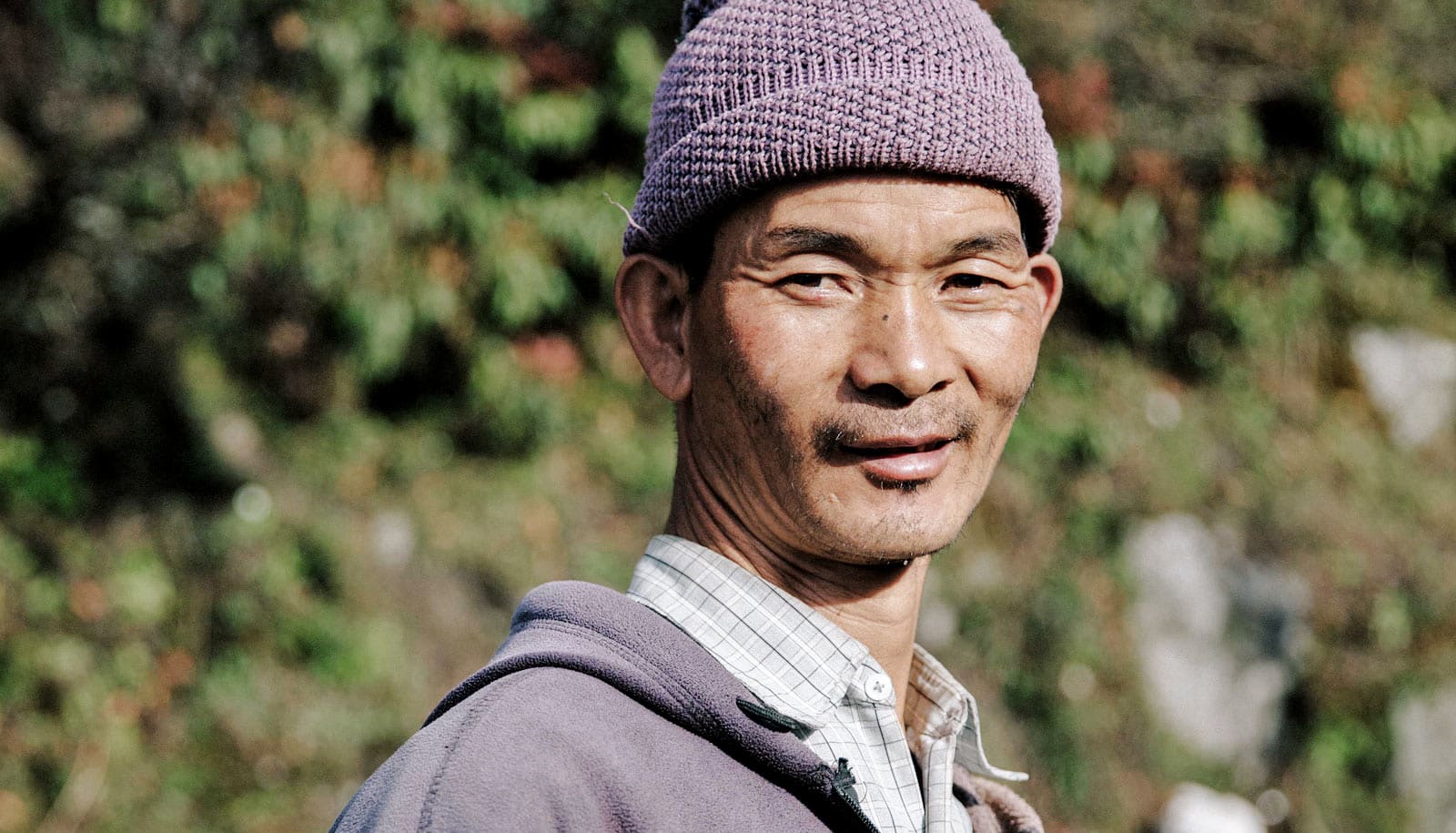Evolution built shame into human nature because it served an important function for our foraging ancestors, a new paper argues.
Living in small, highly interdependent bands, the researchers explain, our ancestors faced frequent life-threatening reversals, and counted on fellow band members to value them enough during bad times to pull them through. So having others devalue our ancestors—deeming them unworthy of help—was literally a threat to their survival.
Therefore, when considering how to act, it was critical to weigh the direct payoff of a potential action (e.g., how much will I benefit by stealing this food?) and against its social costs (e.g., how much will others devalue me if I steal the food—and how likely is it that they will find out?).
The researchers hypothesize that the intensity of anticipated shame people feel is an internally generated prediction of just how much others will devalue them if they take a given action. Moreover, if this feature was part of human nature, it should be observed everywhere—in every culture.
To test for universality, they selected a linguistically, ethnically, economically, and ecologically diverse set of cultures scattered around the world. In these 15 traditional, small-scale societies, the researchers found that the intensity of shame people feel when they imagine various actions (stealing, stinginess, laziness, etc.) accurately predicts the degree to which those actions would lead others in their social world to devalue them.
Feelings and what others think of us
“In a world without soup kitchens, police, hospitals, or insurance, our ancestors needed to consider how much future help they would lose if they took various actions that others disapprove of but that would be rewarding in other ways,” says lead author Daniel Sznycer, an assistant professor of psychology at the University of Montreal.
“The feeling of shame is an internal signal that pulls us away from acts that would jeopardize how much other people value our welfare,” Sznycer says.
“For this to work well, people can’t just stumble about, discovering after the fact what brings devaluation. That’s too late,” says Leda Cosmides, a professor of psychology at the University of California, Santa Barbara, codirector of the university’s Center for Evolutionary Psychology, and a coauthor of the paper, which appears in the Proceedings of the National Academy of Sciences. “In making choices among alternative actions, our motivational system needs to implicitly estimate in advance the amount of disapproval each alternative action would trigger in the minds of others.”
A person who did only what others wanted would be selected against, the authors point out, because they would be completely open to exploitation. On the other hand, a purely selfish individual would be shunned rapidly as unfit to live with in this highly interdependent world—another dead end.
“This leads to a precise quantitative prediction,” says John Tooby, a professor of anthropology, CEP codirector, and a coauthor of the paper. “Lots of research has shown that humans can anticipate personal rewards and costs accurately, like lost time or food. Here we predicted that the specific intensity of the shame a person would anticipate feeling for taking an action would track how much others in their local world would negatively evaluate the person if they took that specific act.
“The theory we’re evaluating,” he continues, “is that the intensity of shame you feel when you consider whether to take a potential action is not just a feeling and a motivator; it also carries vital information that seduces you into making choices that balance not only the personal costs and benefits of an action but also its social costs and benefits.
“Shame takes the hypothetical future disapproval of others, and fashions it into a precisely calibrated personal torment that looms the closer the act gets to commission or discovery,” he says.
A universal warning signal
According to the authors, shame—like pain—evolved as a defense. “The function of pain is to prevent us from damaging our own tissue,” says Sznycer. “The function of shame is to prevent us from damaging our social relationships, or to motivate us to repair them if we do.”
As a neural system, shame inclines you to factor in others’ regard alongside private benefits so the act associated with the highest total payoff is selected, the authors argue. A key part of the argument is that this neurally based motivational system is a part of our species’ biology.
“If that is true, we should be able to find this same shame-devaluation relationship in diverse cultures and ecologies all around the world, including in face-to-face societies whose small scale echoes the more intimate social worlds in which we think shame evolved,” Sznycer notes.
To test this hypothesis, the team collected data from 15 traditional small-scale societies in four continents. The people in these societies speak very different languages (e.g., Shuar, Amazigh, Icé-tód), have diverse religions (e.g., Hinduism, Shamanism), and make a living in different ways (e.g., hunting, fishing, nomadic pastoralism).
“…[Shame] is elegantly engineered to deter harmful choices and make the best of a bad situation.”
If shame is part of universal, evolved human nature, the research should find that the emotion closely tracks the devaluation of others, for each specific act, in each community; but if shame is more akin to a cultural invention like agriculture or the alphabet, present in some places but not others, they should find wide variation from place to place in this relationship. Indeed, anthropologists have long proposed that some cultures are guilt-oriented, some are fear-oriented, and some are shame-honor.
Yet, the authors found the predicted relationships everywhere they tested. “We observed an extraordinarily close match between the community’s negative evaluation of people who display each of the acts or traits they were asked about and the intensities of shame individuals anticipate feeling if they took those acts or displayed those traits,” Sznycer says. “Feelings of shame really move in lockstep with the values held by those around you, as the theory predicts.”
Further studies, he adds, have demonstrated that it is specifically shame—as opposed to other negative emotions—that tracks others’ devaluation.
“Moral wrongdoing is not necessary,” says Sznycer. “In other research we showed that individuals feel shame when others view their actions negatively, even when they know they did nothing wrong.”
In our nature
Of interesting note, anticipated shame mirrored not only the disapproval of fellow community members, but also the disapproval of (foreign) participants in each of the other societies. For example, the shame expressed by the Ik forager-horticulturalists of Ikland, Uganda, mirrored not only the devaluation expressed by their fellow Iks, but also the devaluation of fishermen from the Island of Mauritius; pastoralists from Khövsgöl, Mongolia; and Shuar forager-horticulturalists of the Ecuadorian Amazon.
What’s more, shame mirrored the devaluation of foreigners living nearby in geographic or cultural space just as well as it mirrored the devaluation of foreigners living farther and farther away—another indication of shame’s universality.
These findings suggest that shame is a biological capacity that is part of human nature (such as the ability to speak a language), and not a cultural invention present only in some populations (such as the ability to read or write).
“Shame’s reputation isn’t pretty,” Sznycer concludes, “but a closer look indicates that this emotion is elegantly engineered to deter harmful choices and make the best of a bad situation.”
Additional coauthors of the paper came from the University of California, Santa Barbara; the University of Connecticut; East China Normal University; the Russian Academy of Sciences; the University of Auckland; the Max Planck Institute for the Science of Human History; Arizona State University; the Centro de Estudios Avanzados en Zonas Áridas; Rutgers University; Aoyama Gakuin University; Fukuoka University; University of Nigeria; Universidad San Francisco de Quito; the University of Oregon; and Shiga University.
Source: UC Santa Barbara


